

Organized by Westlake Laboratory, Westlake University, Nature, Nature Aging, Nature Cell Biology and Nature Communications.
This ambitious conference will focus on stem cell biology from the beginning of life (embryogenesis) to aging, reprogramming, repair and regenerative medicine. The sessions will explore models, mechanisms and clinical translation, aiming to draw together concepts from across these significant life stages. With the rapid growth of excellent Chinese research in the recent decade, the organizers foresee this as a central meeting for this expanding research community within China and connecting researchers from across the globe; possibly the first of a series in the country.
Event details
Speakers

Keynote Speaker: Linda Partridge
University College London, UK
Professor Dame Linda Partridge FRS FRSE FMedSci CBE DBE
Linda Partridge works on the biology of ageing. Her research is directed to understanding the mechanisms by which the healthy period of life can be extended in laboratory model organisms and in humans. She has focussed on the role of the nutrient-sensing signalling network and of diet. Her primary current interest is in the potential to repurpose drugs for geroprotection.
She is the recipient of numerous awards. She is a Fellow of the Royal Society, the Academy of Medical Sciences and a foreign member of the American Academy of Arts and Sciences and the German Academy of Sciences Leopoldina. She is the emeritus founding director of the Max Planck Institute for Biology of Ageing in Cologne, Germany.

Keynote Speaker: Toshiro Sato
Keio University, Japan

Keynote Speaker: Magdalena Zernicka-Goetz
California Institute of Technology, USA
Magdalena Zernicka-Goetz is the Bren Professor of Biology and Biological Engineering at the California Institute of Technology. A leading developmental biologist, she earned her Ph.D. in Mammalian Embryology from the University of Warsaw and completed postdoctoral training in Embryonic Stem Cell Biology at the University of Cambridge with Nobel Laureates Martin Evans and John Gurdon. Her research has redefined the understanding of early mammalian development, revealing cellular heterogeneity in the early embryo, the role of epigenetic mechanisms in cell fate determination, and the processes by which aneuploid cells are selectively eliminated. Her lab was the first to establish a culture system that supports human embryo development beyond implantation up to the legal 14-day limit, and pioneered development of stem cell-based embryo models. A recipient of continuous funding from the Wellcome Trust, ERC, NIH, and philanthropic foundations, she has published over 180 scientific papers and co-authored The Dance of Life: Symmetry, Cells, and How We Become Human. She was awarded the 2023 Ogawa-Yamanaka Stem Cell Prize, and her numerous honors include membership in the European Molecular Biology Organization, Foreign Membership in the Polish Academy of Sciences and the Polish Academy of Arts and Sciences, and a Fellowship of the British Academy of Medical Sciences.

Corina Amor Vegas
Cold Spring Harbor Laboratory (CSHL), USA

James DeGregori
University of Colorado Anschutz Medical Campus, USA
James DeGregori is a Professor in the Department of Biochemistry and Molecular Genetics (faculty since 1997) and Deputy Director of the University of Colorado Cancer Center. He has degrees from the University of Texas at Austin (B.A. Microbiology) and the Massachusetts Institute of Technology (PhD Biology), and received postdoctoral training at Duke University. He holds the Courtenay and Lucy Patten Davis Endowed Chair in Lung Cancer Research, and is Editor-in-Chief of the journal Aging And Cancer.
His lab studies the evolution of cancer, in the context of their Adaptive Oncogenesis model, with a focus on how aging, smoking, Down Syndrome, and other insults influence cancer initiation and responses to therapy. In this model, mutations face fitness landscapes that vary with age, genetics, or following carcinogen exposure. These fitness landscapes are highly dependent on the state of the tissue microenvironment in which stem cells reside. The lab has developed this cancer model based on classic evolutionary principles, and substantiated this model by theoretical, experimental and computational studies. Additional studies in the lab seek to identify metabolic and signaling vulnerabilities in cancer, with a focus on acute myeloid leukemias, that can be exploited for the development of more effective therapies. For all of these studies, they leverage a variety of tools, including computational biology, genomics, metabolomics, cell biology, and biochemistry, leveraging both mouse models and human samples.

M. Carolina Florian
IDIBELL, Spain
In 2016, Dr. Florian was awarded an Emmy Noether grant (DFG) to lead her independent research group on Epigenetics of Stem Cell Aging at the Institute of Molecular Medicine, University of Ulm (Germany). In 2018, she was appointed by the Center for Regenerative Medicine in Barcelona (CMRB), now Program for the Clinical Translation of Regenerative Medicine in Catalonia (P-CMRC) and Program of Regenerative Medicine at IDIBELL. (Barcelona, Spain) as group leader. In 2023, she became ICREA Research Professor, joining the prestigious Catalan Institution for Research and Advanced Studies (ICREA).
Dr. Florian’s lab focuses on understanding cellular and molecular mechanisms of somatic stem cell aging, supporting the development of new therapeutic strategies to preserve the regenerative capacity of stem cells over time and to limit or prevent the development of age-related disorders.

Eiji Hara
Osaka University, Japan
Eiji Hara received his Ph.D. from the Tokyo University of Science in 1993 and carried out postdoctoral research in Judith Campisi’s lab at UC Berkeley and in Gordon Peters’s lab at the Imperial Cancer Research Fund in London, before becoming Group Leader at the Paterson Institute for Cancer Research (now the Cancer Research UK Manchester Institute) in 1998. He returned to Japan in 2003 as a Professor at the University of Tokushima, then moved to the Japanese Foundation for Cancer Research in 2008 and the University of Osaka in 2015, maintaining a focus on cellular senescence throughout his research career.

Leanne Jones
University of California, San Francisco, USA
Dr. Jones is a Professor in the Departments of Anatomy and Medicine, Division of Geriatrics at the University of California- San Francisco. In addition, she is the inaugural Director of the Bakar Aging Research Institute at UCSF. Dr. Jones received her Ph.D. degree in Microbiology and Molecular Genetics from Harvard University, followed by postdoctoral fellowships in the laboratories of Philip Ingham (University of Sheffield) and Margaret Fuller (Stanford University School of Medicine). Her lab is interested in uncovering fundamental, conserved mechanisms by which stem cell behavior is regulated, by studying adult stem cells in the fruit fly gonads, brain, and intestine, as well as in the mammalian intestine. Recent work has focused on how stem cell behavior is modulated in response to aging and chronic and acute changes in metabolism.

Kristina Kirschner
Mayo Clinic, USA
I am an Associate Professor at the Mayo Clinic in Rochester in the Department of Hematology and co-Director of the Aging and Cancer Program at the Kogod Aging Center at Mayo Clinic. I am interested in age-related changes in the early stages of carcinogenesis with the aim of early detection. My group investigates hematopoietic stem cell aging and senescence alongside age-associated clonal hematopoiesis on a functional, metabolic, and transcriptional level.
I obtained my Ph.D. from the University of Edinburgh, characterizing one of the first DNA damage-dependent premature ageing mouse models. During my post-doc at the CRUK Cambridge Institute, I revealed previously unanticipated levels of complexity in p53’s response to stress, identifying specific transcriptional patterns in senescence. Seeking a more readily translatable disease model and appreciating the pioneering history of leukemia studies for understanding cancer I joined Prof. Anthony Green’s lab at the University of Cambridge. Ageing is the biggest single cause of cancer, and I therefore combined my expertise in ageing and cancer leading the way in identifying JAK/STAT driven transcriptional clonal hematopoiesis by single cell RNA-seq. For eight years, I held a position as Group Leader/Associate Professor in the School of Cancer Sciences and the Cancer Research UK Scotland Institute, University of Glasgow, U.K. where I developed a framework to estimate the effects of clonal hematopoiesis mutations on adverse outcomes in human aging cohorts.
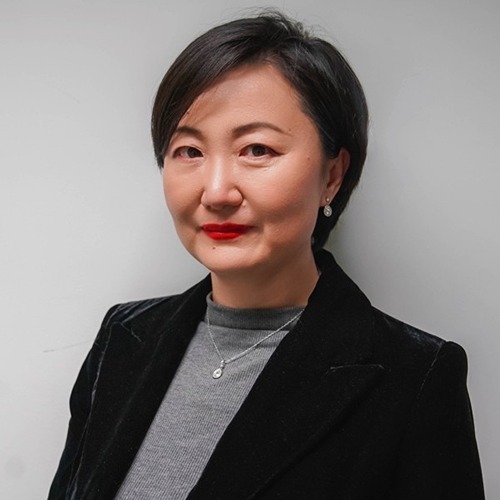
Han Li
Institut Pasteur, France
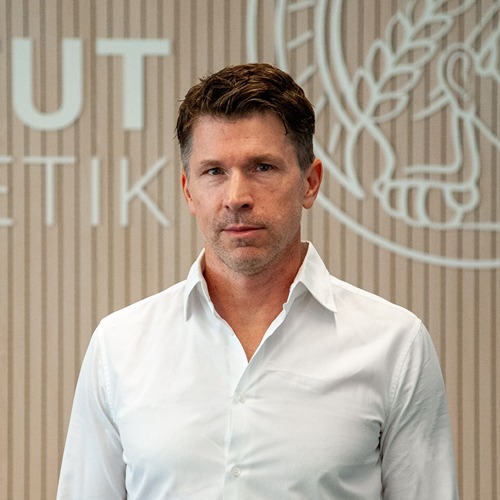
Alexander Meissner
Max Planck Institute for Molecular Genetics, Germany
Alexander Meissner has been the Director and Head of the Department of Genome Regulation at the Max Planck Institute for Molecular Genetics since 2017.
After studying Medical Biotechnology at the Technical University of Berlin, he began his PhD studies with Rudolf Jaenisch at the Whitehead Institute/MIT in 2002. After completing his PhD in 2006, he worked with Jaenisch and Eric Lander before establishing his own laboratory as an assistant professor in the Department of Stem Cell and Regenerative Biology at Harvard University, also serving as an associate member of the Broad Institute. He was promoted to Associate Professor in 2012 and to Full Professor with tenure in 2015.
His laboratory comprises experimental and computational biologists who use genomic tools to study developmental and stem cell biology, particularly the role of epigenetic regulation.
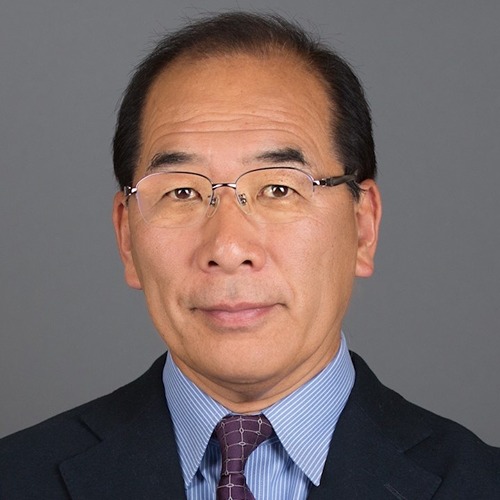
Hiromitsu Nakauchi
Stanford University School of Medicine, USA
Dr. Hiromitsu (Hiro) Nakauchi is a Professor in the Department of Genetics and the Institute for Stem Cell Biology and Regenerative Medicine at Stanford University School of Medicine. As a physician-scientist, he has made pioneering contributions to stem cell biology, hematology, developmental engineering, and immunology.
He was the first to demonstrate that a single hematopoietic stem cell (HSC) can reconstitute the entire blood system, providing definitive proof of stemness. His laboratory subsequently developed methods for the ex vivo expansion of functional HSCs, establishing a powerful platform for both fundamental biology and clinical translation. He has also advanced applications of induced pluripotent stem cells (iPSCs), including the in vitro generation of human platelets and T cells for transfusion and immunotherapy. Furthermore, his groundbreaking research on the organ niche concept led to the creation of a rat pancreas in a mouse, laying the foundation for cross-species organogenesis.
Dr. Nakauchi’s work continues to drive innovations that bridge basic science and clinical medicine, shaping the future of regenerative medicine.

Francesco Neri
University of Turin, Italy
Prof. Neri obtained PhD in Biotechnology in Siena (Italy) working on embryonic stem cells epigenetics. Then he worked as postdoc between Human Genetics Foundation (HuGeF) in Torino (Italy) and the Radboud University Medical Centre, Nijmegen (Netherlands) where specialized his research on the DNA methylation specific epigenetic mark on stem cell, differentiation and colon cancer. During this period, he characterized new mechanisms of gene transcriptional regulation, developed new epigenomic genome-wide methods and identified the role of the intragenic methylation. In 2015, Prof. Neri was appointed as Group Leader of the “Epigenetics research group” at the Fritz Lipmann Leibniz Institute on Aging (FLI) in Jena (Germany). His research was supported by the Sofja Kovalevskaja starting grant of the von Humboldt foundation, and it was focused on the aging-dependent epigenetic aberrations occurring in adult stem cells promoting colon cancer. In 2021, Prof. Neri moved his laboratory at the University of Torino, where he is Full Professor of Molecular Biology and is leading the research group of Epigenetics of Aging & Cancer at the Molecular Biotechnology Center (MBC) in Torino. The current research of Prof. Neri focuses on inflammaging, intestinal stem cell aging, epigenetic drifts and how aging functionally impacts on colon cancer initiation.

Emi Nishimura
The University of Tokyo, Japan

Ryuichi Nishinakamura
Kumamoto University, Japan
Ryuichi Nishinakamura graduated from the University of Tokyo School of Medicine and worked as a clinical nephrologist for several years. After receiving his Ph.D., he started working on kidney development at the University of Tokyo. In 2004, he moved to Kumamoto University, where he became a professor at the Institute of Molecular Embryology and Genetics. He also served as the institute's director for four years, until 2020. He pioneered genetic research in developmental nephrology and identified several key genes by generating knockout mice with kidney defects. Based on these findings, he successfully generated two types of kidney organoids (nephron and ureteric bud) from pluripotent stem cells. Recently, he reported on modeling kidney disease from patient-derived iPS cells and generating more complex, branched kidney organoids. His ultimate goal is to create a transplantable kidney.

Tien Peng
University of California, San Francisco, USA
The Peng Lab is interested in how fibroblasts integrate extracellular cues to modify the tissue niche, with a particular focus on fibroblasts that support tissue-resident stem cells and immune cells. We utilize complex murine genetic models and human specimen to interrogate how fibroblasts maintain organ homeostasis, initiate disease, and drive tissue aging. Tien is a pulmonologist by training and the lab utilizes the lung as a model organ due to its immense cellular diversity and architectural complexity.

Giorgia Quadrato
Broad-CIRM Center for Stem Cell and Translational Medicine, USA
University of Southern California, USA
Giorgia Quadrato is an Associate Professor at USC’s Department of Stem Cell Biology and Regenerative Medicine. She is also the Director of the USC CIRM ASCEND Shared Resource Laboratory, dedicated to offering organoids and other stem cell-based models, analyses, consultations, and in-depth education and training. Dr. Quadrato’s lab focuses on understanding the cellular and molecular basis of human brain development and disease. By combining the use of emerging models of the human brain with single-cell omics approaches, she is aiming to identify cell type-specific disease mechanisms and, above all, new treatments for human neurodevelopmental disorders. Quadrato received the 2019 Donald E. and Delia B. Baxter Foundation Faculty Scholar Award, the 2020 Edward Mallinckrodt, Jr. Foundation Early Career Faculty Award, and the 2022 Broad Innovation Award. Since 2024, she has been a member of the Scientific Advisory Boards for the Syngap Research Fund (SRF) and Quiver Bioscience.

Peter Rugg-Gunn
Babraham Institute, UK
Peter Rugg-Gunn is a Senior Group Leader at the Babraham Institute in Cambridge. He is also an Affiliate Principal Investigator at the Cambridge Stem Cell Institute and at the Loke Centre for Trophoblast Research, and is the Chief Investigator of the Human Developmental Biology Initiative. Peter obtained a BSc from the University of York, a PhD at the University of Cambridge, and then undertook postdoctoral training at The Hospital for Sick Children, Toronto. In 2011, he received a Wellcome Fellowship that enabled him to establish his research group at the Babraham Institute, where he was awarded tenure in 2017. Peter's research interests centre on understanding how the epigenome is established during human development and how this affects cell fate decisions in human embryos and in stem cell-based embryo models. His group is particularly interested in epigenetic mechanisms that contribute to cellular plasticity and lineage specification. Peter is also the Head of Public Engagement at the Babraham Institute and he has co-led national projects exploring society's views on human embryo research.
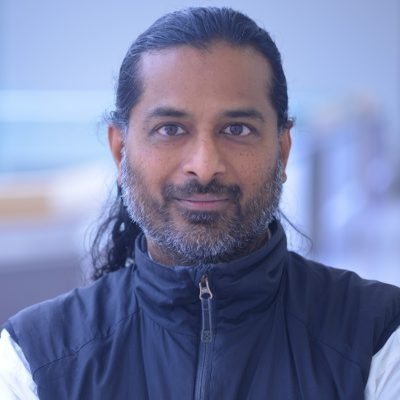
Shankar Srinivas
University of Oxford, UK
Shankar has been interested in the emergence of shapes in biology for as long as he can remember. After completing a BSc in Nizam College in Hyderabad, India, he joined the group of Frank Costantini in Columbia University, New York, where he received a PhD for work on the molecular genetics of kidney development. Following this, he moved to the NIMR in Mill Hill, London, where he worked as a HFSPO fellow in the groups of Rosa Beddington and Jim Smith on how the anterior-posterior axis is established. Here, he pioneered the use of time-lapse microscopy to study early post-implantation mouse embryos. Since establishing his independent group at the University of Oxford in 2004, Shankar has been using mouse and human embryos as models to study the control of patterning and morphogenesis during the formation of the anterior-posterior axis, gastrulation and early cardiogenesis. Shankar Srinivas is currently Professor of Developmental Biology in the Department of Physiology Anatomy & Genetics at the University of Oxford, based at the Institute for Developmental and Regenerative Medicine.
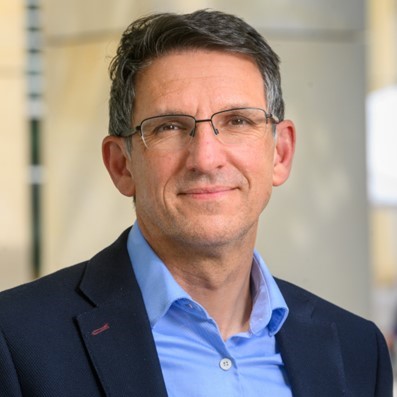
Ludovic Vallier
Berlin Institute of Health at Charité (BIH), Germany
Ludovic Vallier is Einstein Professor for Stem Cells in Regenerative Therapies at the Berlin Institute of Health (BIH) and Max Planck Fellow at the Max Planck Institute for Molecular Genetics (MPIMG). He received his PhD from Ecole Normale Superieure of Lyon /University Claude Bernard in 2001 where he studied the function of cell cycle regulators in pluripotency. He then joined the group of Prof. Roger Pedersen at the University of Cambridge, Department of Surgery, where he uncovered the mechanisms by which TGFb signaling controls self-renewal and differentiation of human pluripotent stem cells. He became Professor of Regenerative Medicine in 2015, and he was co-deputy director of the Wellcome and MRC Cambridge Stem Cell Institute until 2022 when he moved to Berlin. His group takes advantage of human pluripotent stem cells and organoids derived from primary tissues to study liver disease and to develop cell-based therapies. More precisely, they investigate the molecular mechanisms controlling cell fate decisions during human liver development and exploit the resulting knowledge to understand mechanisms driving disease progression and/or regeneration in the adult organ. The resulting knowledge is then translated into regenerative medicine applications against liver diseases.
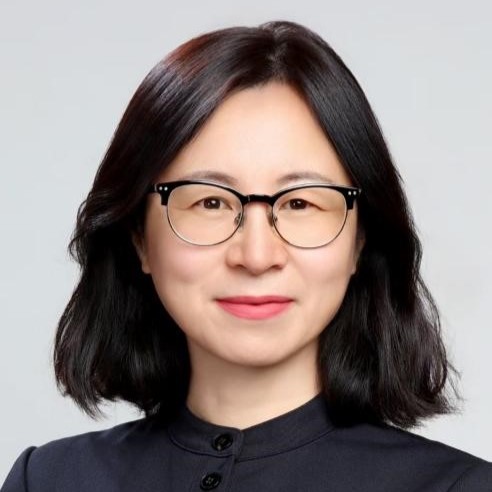
Hongmei Wang
Institute of Zoology, Chinese Academy of Sciences, China
Hongmei Wang is a professor of State Key Laboratory of Organ Regeneration and Reconstruction, Institute of Zoology (IOZ), Chinese Academy of Sciences (CAS). She is the deputy director of the IOZ and also serves as the chairman of the Chinese Society of Reproductive Biology. She previously served as the director of the State Key Laboratory of Stem Cell and Reproductive Biology (2017-2025). She received her Bachelor’s (1995) and Master’s (1998) degrees in Cell Biology from Beijing Normal University and her Ph.D. degree (2002) in Reproductive Physiology from IOZ. Hongmei had her postdoctoral training (2003-2005) at the Ottawa Health Research Institute, University of Ottawa. Hongmei and her research team are committed to utilizing various models, including in vitro cultured human, non-human primate, and mouse embryos, stem cell-based embryo models, and organoids, to unravel the fundamental events and mechanisms of mammalian early embryonic development and placentation. Additionally, they seek to establish the relationship between the anomalies in embryonic and placental development and the onset of birth defects or gestational-related diseases.
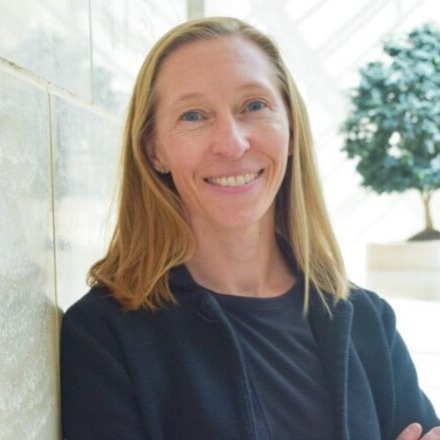
Ashley Webb
The Buck Institute, USA
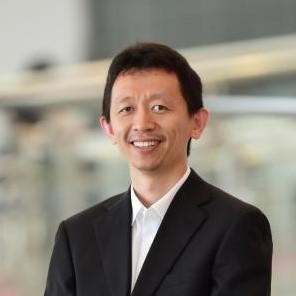
Wei Xie
Tsinghua University, China
Dr. Wei Xie is a Professor and Vice Dean at School of Life Sciences, Tsinghua University. He received his B.S. degree in Molecular Biology at Peking University in China in 2003. He pursued his Ph.D study at UCLA, where he joined the laboratory of Michael Grunstein to study the function of histones and histone modifications. He also obtained a M.S. double degree in statistics at UCLA with Ker-Chau Li. After completing his graduate studies in 2008, he continued research in epigenetics and transcription regulation as a postdoctoral fellow in Bing Ren’s lab at the Ludwig Institute for Cancer Research, UCSD in 2009. After his postdoc training, he joined Tsinghua University, School of Life Sciences, in Beijing as Assistant Professor in 2013. He then became tenured Associate Professor in 2017 and Full Professor in 2019. He is also a member of the Tsinghua-Peking Joint Center for Life Sciences.
Using interdisciplinary approaches, Dr. Xie is dedicated to understanding how transcription is regulated and how the epigenome is reprogrammed in early mammalian development when life just begins. His group established a series of ultra-sensitive technologies to analyze chromatin dynamics using a few hundred cells or even single cells. His work showed certain histone marks and the 3D chromatin organization undergo erasure and re-establishment after fertilization in mammalian embryos, demonstrating extensive epigenetic memory resetting. His studies also showed how transcription machinery RNA Pol II undergoes “preconfiguration” prior to zygotic genome activation (ZGA) to prepare for the onset of transcription. He also discovered a panel of key transcription factors that play instrumental roles in establishing the transcription programs in mouse and human early embryos, including the major TF regulators for mammalian ZGA, the OBOX/TPRX family. Over years, he has authored over 100 publications which has been cited over 20,000 times.
Dr. Xie serves on the editorial boards of Development, Stem Cell Reports, the Board of Directors for ISSCR, and a former member of Reviewing Editor of Science. He has won numerous awards including HHMI International Research Scholar, Qiushi Excellent Young Scholar Award, Outstanding Young Scholar Award from National Science Foundation of China, C. C. Tan Life Science Innovation Award, the Xplorer Prize Award and the New Cornerstone Investigator Program.
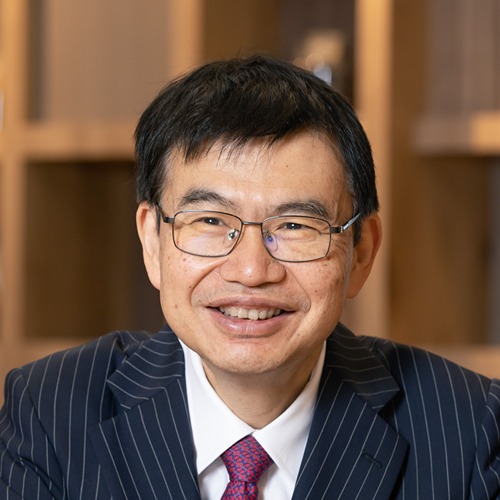
Hideyuki Okano
Keio University, Japan
